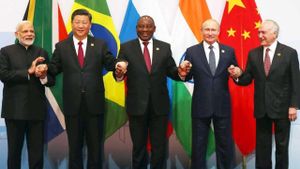On January 20, 2025, Donald Trump was inaugurated as the 47th president of the United States, officially marking his return to the White House with grand promises for reform and revitalization under his beloved slogan: Make America Great Again (MAGA). Supporters flooded the streets of Washington, DC, rallying to hear his vision of national strength and prosperity, with Trump declaring, "Tomorrow, at noon, the curtain closes on four long years of American decline, and we begin a brand new day of American strength and prosperity, dignity and pride." This sentiment set the stage for what many perceive to be not just his second term but, as Trump suggests, the beginning of America’s golden age.
The raucous celebration commenced on January 19, when thousands congregated at the Capital One Arena for what was termed the "MAGA Victory Rally." Trump made his first major address there since the events of January 6, 2021, the day his supporters stormed the Capitol. He not only pledged immediate action on his first day, which includes over 200 executive orders but also promised to tackle issues such as immigration, energy policy, and trade. His intention is clear: to reinstate and amplify the MAGA agenda which propelled him to power four years prior.
Trump's rhetoric remained resolutely populist, asserting, "We will launch the biggest deportation program in American history," directly referring to the approximately 11 million undocumented immigrants residing within the nation’s borders. At his rally, he elaborated on his plans to reinstate measures he believes were detrimental to American values, echoing his earlier pledges from his first candidacy.
There was also considerable international alignment expressed during the inauguration festivities, particularly with far-right European leaders. Viktor Orbán of Hungary and Giorgia Meloni of Italy both voiced support for Trump’s vision, with Musk invigoratedly calling for "Make Europe Great Again" or MEGA. Orbán had laid the groundwork for this phrase months earlier, aligning Trump's agenda with European populist sentiments. Marion Maréchal, the French parliamentarian, conveyed similar enthusiasm, stating, "The elation sparked by Donald Trump's victory is the inspiration we need."
Despite transforming the course of American politics, Trump's policies and speeches present challenges for unity. Critics argue his return promotes division, as he continues to push against progressive platforms with promises to eliminate federal programs aimed at diversity and inclusion. On the day of his inauguration, Democrat opposition leaders remarked on the potential volatility Trump’s policies might incite, igniting fears of increased political polarization.
Trump's economic reforms were aggressively introduced during his candidacy talks as he unveiled plans to enact tariffs on imported goods, eyeing Mexico and Canada primarily. He seeks to establish tariffs ranging from 10 to 25 percent depending on the product, potentially igniting trade wars similar to those he initiated during his first term. His sheer confidence was palpable as he assured supporters they would soon witness the effects of his policy decisions.
Even pressing issues such as climate policy did not escape Trump's attention, as he asserted intentions to promote fossil fuel production without remorse. The slogan he referenced during his first campaign, "Drill, baby, drill," resurfaced as he made commitments to quickly dismantle environmental restrictions implemented by the previous administration. These measures are being portrayed as necessary steps toward not just economic recovery but environmental regression as well, prioritizing energy independence above ecological responsibility.
While Trump is unapologetically focused on bolstering his base and continuing his battle against political opposition, he also promised benefits to traditionally overlooked demographics. He cited improved polling numbers, particularly among African Americans and Latinos, hinting at a broader acceptance of his policies. Nonetheless, enemies and allies alike regard this optimism as overstated, finding discrepancies between the historical voting patterns of these groups and Trump's pronounced victory narrative.
The inauguration ceremony itself attracted significant global attention. Donald Trump asserted during his inaugural address, reflecting on his tumultuous political career, proposing the culmination of what he labeled ‘Manifest Destiny’—a vision not just confined to earthly ambitions, but even extending to outer space aspirations, promising to launch American astronauts to Mars. His sweeping rhetoric presented grand visions for America’s future, conjuring images of re-establishing global dominance.
With polarizing policies at the forefront, Trump’s followers eagerly anticipated pivotal actions from their leader. Supporters gathered outside correctional facilities hoping Trump would soon announce pardons for many convicted participants of the Capitol riots. Although he did not mention them during the inaugural address, Trump's assurance of "actions not words" has left many hopeful for imminent announcements.
The return of Trump's MAGA agenda is as much about resurrection as it is about revolution. The extensive socio-political ramifications remain to be seen, but as the dust settles on this inaugural ceremony, the sentiment among his supporters is clear: they are ready for Trump's brand of politics, unapologetically and unabashedly American.



